One of the first rules of drafting a scientific paper is that one cites the key literature in the respective field. So as someone who teaches people how to write and publish in this week’s experience of getting a paper rejected was not great, if not disheartening! Earlier this week we submitted a research paper to the Journal of Travel Medicine on a study of the health and well-being of female migrant workers in Nepal. This is high quality journal in which we have published before, including one paper on migrants’ health [1-3].
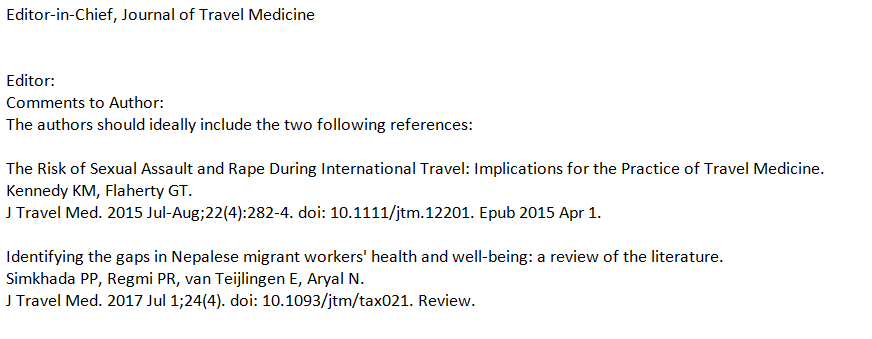 Two days later the journal editor emailed us to say: “”We feel that the scope of your paper would not justify a full original article in the Journal of Travel Medicine”, which is, in our opinion, a fair judgement. My co-authors and I between us have over 300 papers published and most have been rejected or at least we have been asked for a resubmission, so nothing new here. What was more upsetting than the rejection itself was the additional comment. The editor added:
Two days later the journal editor emailed us to say: “”We feel that the scope of your paper would not justify a full original article in the Journal of Travel Medicine”, which is, in our opinion, a fair judgement. My co-authors and I between us have over 300 papers published and most have been rejected or at least we have been asked for a resubmission, so nothing new here. What was more upsetting than the rejection itself was the additional comment. The editor added:
“The authors should ideally include the two following references:
……(first reference omitted) …. +
Identifying the gaps in Nepalese migrant workers’ health and well-being: a review of the literature.
Simkhada PP, Regmi PR, van Teijlingen E, Aryal N. J Travel Med. 2017 Jul 1;24(4). doi: 10.1093/jtm/tax021. Review.
We agree with the editor that we should have included the two listed key papers. Crucially, it is more than a little mistake to have missed the second paper since we wrote it ourselves. There are many lessons to be learnt from this: (a) check you have covered the key literature in your paper, either in the Background section and/or the Discussion; (b) don’t underestimate the importance of your own work; (c) you’re never too old to make mistakes (and to learn from them); (d) be thankful for good editors and reviewers; (e) do what you advise others to do; (f) etc. ………………
In shame,
Prof. Edwin van Teijlingen
CMMPH
References:
- Hind, C., Bond, C.M., Lee, A., van Teijlingen E. (2008) Needs assessment study for community pharmacy travel medicine services, Journal of Travel Medicine 15(5): 328-334.
- Bhatta, P., Simkhada, P., van Teijlingen E., Maybin, S. (2009) A questionnaire study of VSO volunteers: Health risk & problems encountered. Journal of Travel Medicine 16(5): 332-337.
- Simkhada, P.P., Regmi, P.R., van Teijlingen, E., Aryal, N. (2017) Identifying the gaps in Nepalese migrant workers’ health and well-being: A review of the literature, Journal of Travel Medicine 24 (4): 1-9.
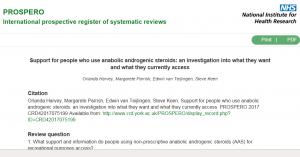
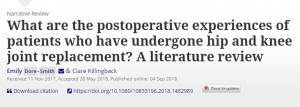
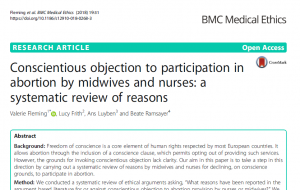







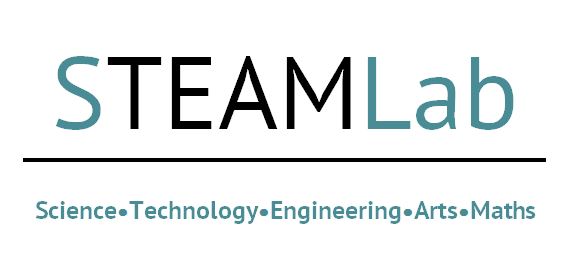
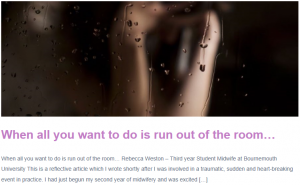
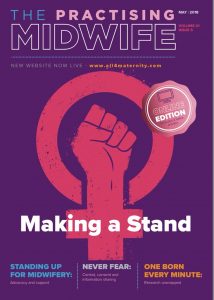
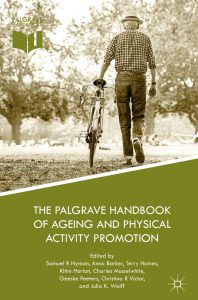
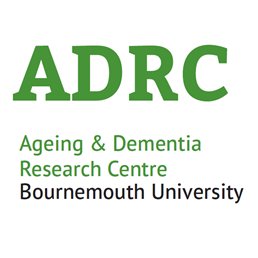 Professor Jane Murphy from the Ageing and Dementia Research Centre (ADRC) has been invited to join the Malnutrition Task Force (MTF) board (
Professor Jane Murphy from the Ageing and Dementia Research Centre (ADRC) has been invited to join the Malnutrition Task Force (MTF) board (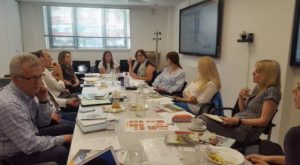
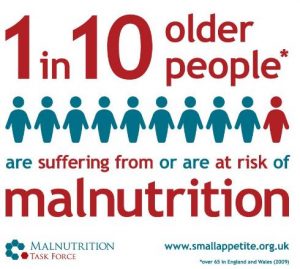
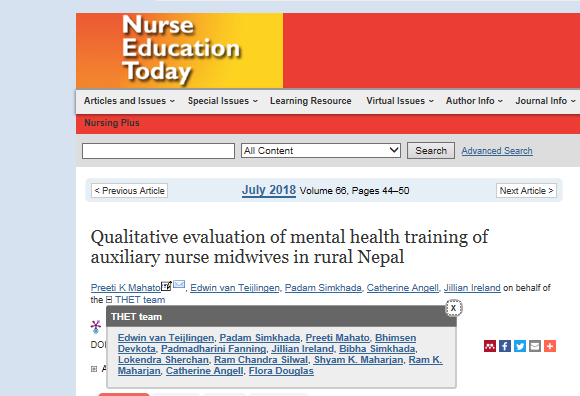
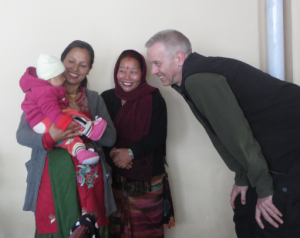
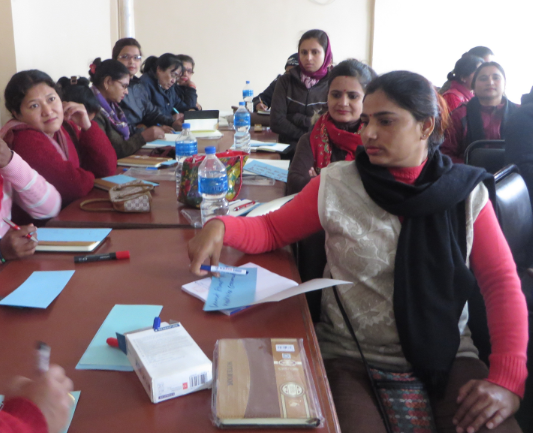
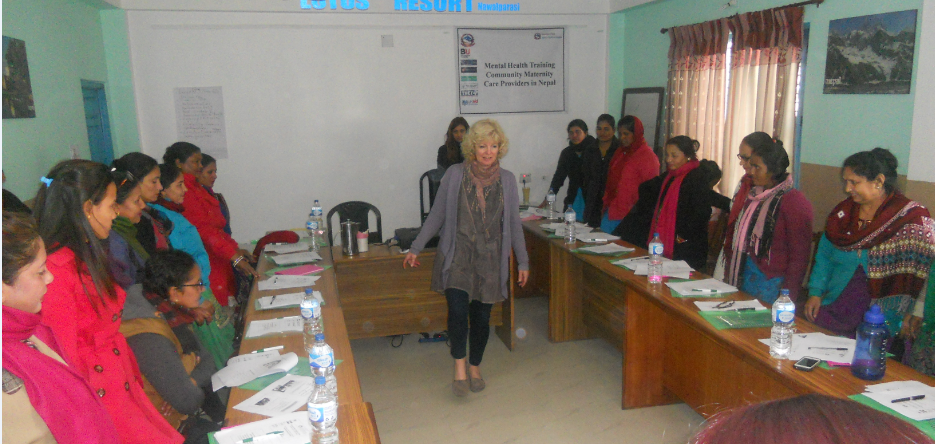

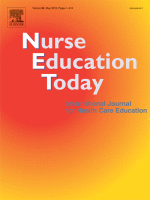
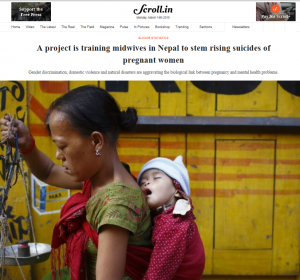












 BRIAN upgrade and new look
BRIAN upgrade and new look Seeing the fruits of your labour in Bangladesh
Seeing the fruits of your labour in Bangladesh Exploring Embodied Research: Body Map Storytelling Workshop & Research Seminar
Exploring Embodied Research: Body Map Storytelling Workshop & Research Seminar Marking a Milestone: The Swash Channel Wreck Book Launch
Marking a Milestone: The Swash Channel Wreck Book Launch ECR Funding Open Call: Research Culture & Community Grant – Application Deadline Friday 12 December
ECR Funding Open Call: Research Culture & Community Grant – Application Deadline Friday 12 December MSCA Postdoctoral Fellowships 2025 Call
MSCA Postdoctoral Fellowships 2025 Call ERC Advanced Grant 2025 Webinar
ERC Advanced Grant 2025 Webinar Update on UKRO services
Update on UKRO services European research project exploring use of ‘virtual twins’ to better manage metabolic associated fatty liver disease
European research project exploring use of ‘virtual twins’ to better manage metabolic associated fatty liver disease